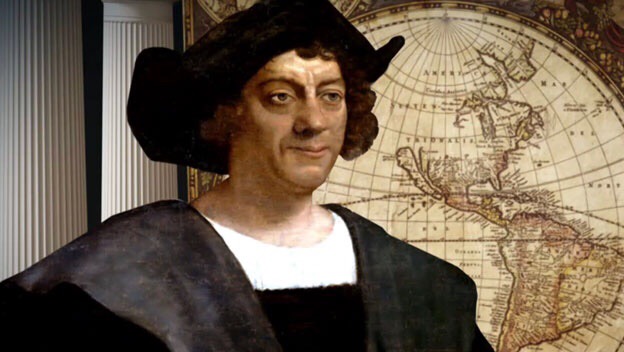The Knights of Columbus in time for Columbus Day highlighted a recent poll showing Americans by two to one favor continuing to honor the Great Discoverer. Here’s their news release:
“The Knights of Columbus joins the vast majority of Americans in celebrating Columbus Day,” said Supreme Knight Carl Anderson. “He was a man ahead of his time, who brought two worlds together and began the process that led to the founding of this country. It is a testament to Americans’ commitment to a fair reading of history that the explorer’s popularity has endured despite the unfair and hateful attacks by British propagandists, the Ku Klux Klan and revisionist academics.”
It noted:
Among respondents identifying as Catholic, approval of the navigator is even higher, with almost two-thirds (65 percent) of respondents expressing a “favorable” or “very favorable” opinion of Columbus and the national holiday that honors him.
And it explained of itself:
The world’s largest Catholic fraternal organization, the Knights of Columbus, was founded in 1882 by Venerable Father Michael McGivney, who chose to honor Columbus because he was a widely acclaimed Catholic figure from American history during a time when Catholics were frequently discriminated against and marginalized.
Of course the Knights are responding to the recent frenzy of historical iconoclasm. But as early as 1990 the National Council of Churches was denouncing celebration of Columbus, whose “invasion” facilitated eventual genocide, slavery, colonialism, etc, prompting this classic response from Richard Neuhaus’ First Things.
When the liberal church council debated its anti-Columbus stance, an Episcopal bishop objected to its stridency: “Many of us find it hard to state this is not a time for celebration,” he said. “There are many things over the past 500 years to thank God for.”
But gratitude today, more so than in 1990, is out of fashion in public debate. Anger, outrage, resentment, entitlement and victimhood are the typically preferred default attitudes, at least in those conversations getting the most attention in public life. There is rarely any acknowledgement by the aggrieved that they are by every material measure among the most privileged and comfortable people who have ever walked the planet.
The richest potentate in the time of Columbus would look upon the downtrodden of today’s society with wonder, amazement and jealousy. A modern bathroom, can of disinfectant, or bottle of aspirin would of themselves elevate today’s poor above yesterday’s emperor or sultan.
The progression of human equality and human rights would also shock. Today a teenager can tweet denunciation of the world’s most powerful to wide acclaim and no negative repercussions. Similar words not long ago in history would’ve earned iron and chains, the rack, or beheading.
Today’s apostles of historical grievance look into the past and see only oppression and evil. They are partly right, in that the past was darker, crueler, unhealthier, more impoverished, more violent, more capricious, more stratified, more intolerant, and more tragic. But the material and spiritual advantages of today did not materialize magically, nor do we in our own time merit credit. The wisdom, courage, insights and audacity of flawed people in the past, by divine grace, carried us to the present time,
Those people of the past were, no less than we, sinners, often deplorably. As we in our present day, they often lied, cheated, prevaricated, stole, lusted, and were selfish. They sometimes oppressed, enslaved and killed. Many of them realized their frailties and sought forgiveness with redemption. Most people likely followed the mores of their time and culture as best they could, unaware of plausible alternatives.
God who sees into the hearts of all will judge all according to His justice and mercy. We can strive to make informed judgments about the past, but we don’t have divine insight, and we ourselves are not inately righteous. Most of us if in another time and place would have done not very differently from most people of that era and culture.
We should always give thanks for our advantages, focus on our own sins instead of the sins of dead people, and try to learn from those dead people, whose struggles and adversities can teach us a lot. On the last day we will stand with them as the fellow judged, and hopefully fellow redeemed, before our common Judge and Savior. Some of them will rank ahead of a lot of us in the final reckoning.
So thank you Knights of Columbus, for your famous philanthropy, but also for your spirit of thanks towards the past. Such appreciation requires modesty and introspection about the present, which is never easy but always needed.





Comment by Penny on October 26, 2017 at 1:19 am
Thank you for this article. You said so much of what I myself have thought about this situation and other similar situations. I will no doubt quote you when this subject resurfaces next year.